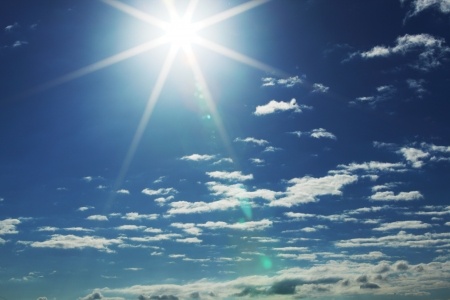‘Heat dome’ in western US, Canada brings scorching temperatures
OTTAWA, Canada – A “heat dome” over western Canada and the US Pacific northwest sent temperatures soaring to new highs, triggering heat warnings from Oregon to Canada’s Arctic territories on Sunday.
More than 40 new temperature highs were recorded in British Columbia over the weekend, including in the ski resort town of Whistler. And the high pressure ridge trapping warm air in the region is expected to continue breaking records throughout the week.
Environment Canada issued alerts for British Columbia, Alberta, and parts of Saskatchewan, Yukon and the Northwest Territories.
“A prolonged, dangerous, and historic heat wave will persist through this week,” it said in the warnings.
“Afternoon high temperatures will climb to the mid 30’s today (Sunday), and will peak near 40 degrees Celsius (104 Fahrenheit) in some regions by midweek.”
Article continues after this advertisementThese temperatures are 10-15 degrees Celsius hotter than normal.
Article continues after this advertisementThe US National Weather Service issued a similar warning about a “dangerous heat wave” that could see record temperatures rise to more than 30 degrees Fahrenheit above normal in parts of Washington and Oregon states.
“The historic Northwest heat wave will continue through much of the upcoming week, with numerous daily, monthly and even all time records likely to be set,” it said in a statement.
Monday is expected to be the hottest day in big cities such as Seattle and Portland with all time record highs likely in both cities.
The highest temperature ever recorded in Canada was 45 degrees Celsius (113 Fahrenheit) in two towns in southeastern Saskatchewan on July 5, 1937.
And it could be broken in the coming days with temperatures in current hotspot Lytton, British Columbia — about 250 kilometers (155 miles) northeast of Vancouver — forecast to reach 46 degrees Celsius (115 Fahrenheit).
“I like to break a record, but this is like shattering and pulverising them,” Environment Canada senior climatologist David Phillips told broadcaster CTV
“It’s warmer in parts of western Canada than in Dubai.”
Wildfire risks are elevated, and water levels in lakes and rivers are lower.
Stores reportedly sold out of portable air conditioners and fans, while cities opened emergency cooling centres and several COVID-19 vaccination clinics were cancelled.
The British Columbia power utility, meanwhile, said electricity demand has soared to record levels as residents sought to keep cool.
